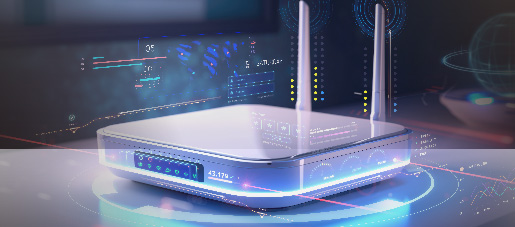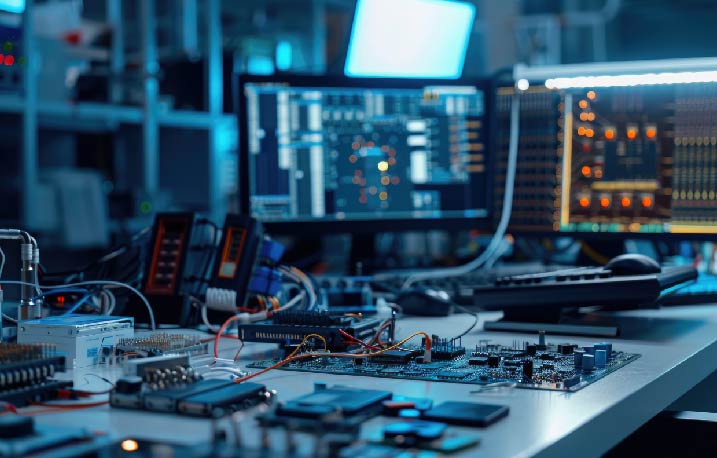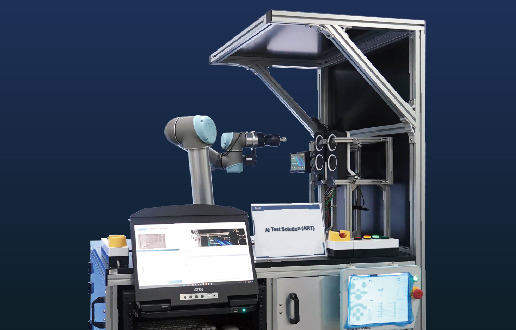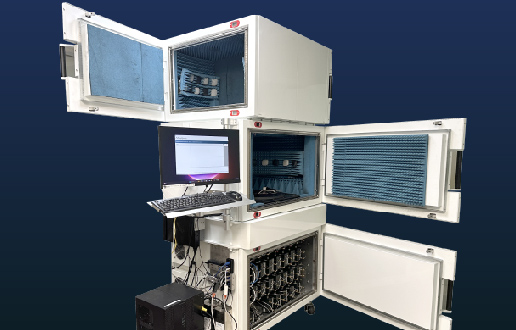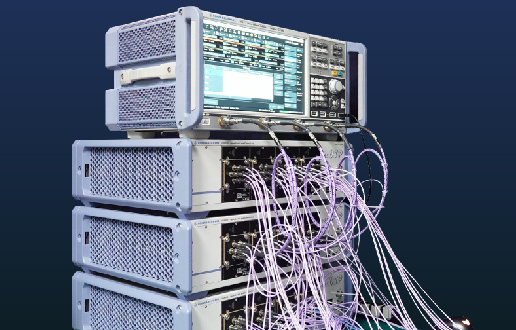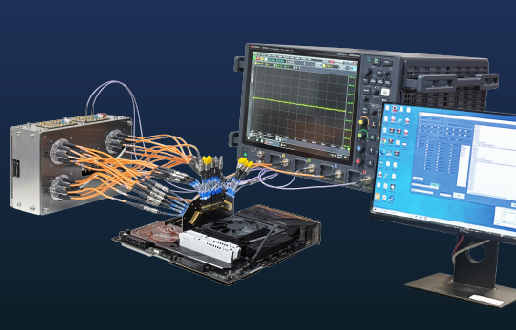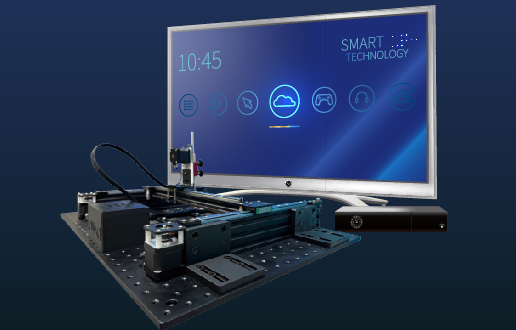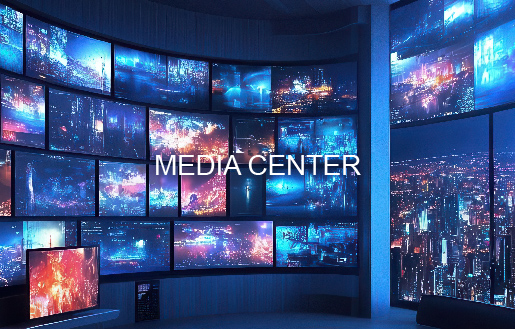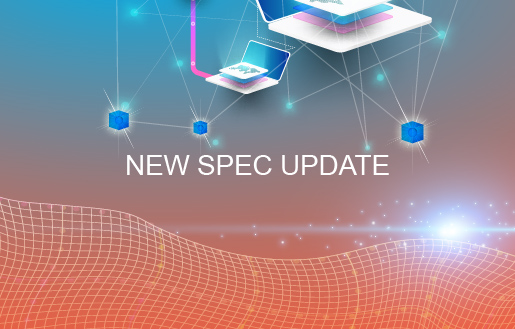Allion Labs
External hard drives are very common these days. In the early days, external hard disks were mostly used to connect to PC systems for data expansion and backup. However, with the gradual evolution of USB Type-C, USB 3.2, and Thunderbolt 3, file transfer speeds have become increasingly faster. The transmission speed of external hard drives is now sufficient for video editors to edit 4K videos in real-time. Players with newer game consoles can also use external hard drives to directly run games. With the Type-C interface, you can also connect to mobile phones to quickly back up videos and photos on your mobile device.
First, let’s take a look at the major difference in the specifications of mainstream external hard drives. In terms of physical size, external HDDs usually come in two sizes: 2.5” and 3.5”.
The 2.5” external hard drive is portable and can be powered with the host connection. Currently, mainstream 2.5” hard drive storage sizes range from 1TB to 5TB. These drives are the most common type of external hard drive today. The 3.5” external hard drive is larger, its storage capacity usually exceeds 6TB, and they get power from an independent power supply. These types of drives are suitable for large-scale file backups. In terms of transfer speed, there’s a big difference between the theoretical reading/writing speed and the actual speed. Most of the external hard drives on the market already support USB 3.0 or higher, so as long as the transfer speed is not too low, it should not be a big issue.
As for external solid-state drives (SSDs), they usually have both benefits of portability and high-speed transmission (5 to 8 times faster than an HDD). SSDs used to be considered luxury products in the past, but now they are gradually becoming mainstream.
Whether you’re using an external hard drive or a solid-state drive, most users will be connecting to the following host devices.
- Desktops or laptops
- Tablets (USB Type-C)
- TVs or STB (used for recording)
- Smartphones
- Gaming consoles
On different devices, manufacturers show the supported read/write speeds of the external hard drive, the operating system, and lifespan. Through user feedback from large e-commerce companies, Allion has tested and observed many different external hard drives and found that there were quite a few compatibility issues with them. First, we collected one-star reviews from users on Amazon.

| External HDD | Quantity | Percentage |
| Had slow transfer speeds that did not meet the specifications of USB 3.0 | 60 | 26% |
| Not durable and malfunctioned soon after purchase | 45 | 20% |
| Undetectable or corrupted files after transferring on Mac | 40 | 18% |
| Undetectable on PCs | 31 | 14% |
| File disappears | 15 | 7% |
| Unstable and often fails when using as Time Machine backup disk | 15 | 7% |
| Not compatible with PS5, but the packaging claims it is the best choice for the PS5 | 10 | 4% |
| Undetectable after connecting through a USB hub | 6 | 3% |
| Playing PS4 games on a PS5 is extremely slow | 5 | 2% |
*Collected 227 one-star reviews
Below is another one-star review analysis for an external SSD that sold very well.

| External SSD | Quantity | Percentage |
| Not durable and malfunctioned soon after purchase | 56 | 30% |
| Undetectable or corrupted files after transferring on Mac | 37 | 20% |
| Had slow transfer speeds that did not meet the specifications of USB 3.2 | 21 | 11% |
| Overheating | 21 | 11% |
| File disappears | 18 | 10% |
| Undetectable on PCs | 12 | 6% |
| File corruption or hard disk storage error occurs after connecting with iPad | 9 | 5% |
| After connecting to PS5, it suddenly disconnects without warning | 6 | 3% |
| Compatibility problems with Windows 11 and driver failure | 6 | 3% |
*Collected 186 one-star reviews
We can see that there are lots of issues that are similar, whether it’s for HDD or SSD. The top three issues that users are most dissatisfied with are as follows:
- “Had slow transfer speeds that did not meet the specifications”
- “Not durable and malfunctioned soon after purchase”
- “Undetectable or corrupted files after transferring on Mac”
Let’s discuss the first two issues first.
The first two problems can also be caused by the host connection or incorrect usage that leads to poor performance and instability. However, such a high percentage of feedback must also mean there are problems with the product’s functionality and durability.
We recommend you take a look at Allion’s performance evaluation article on SSDs so you can quickly understand the evaluation and benchmarks for these products. Now, let’s look at the third issue related to Mac.
This is a compatibility and stability issue between the hard drives and the Mac system. Interestingly, both products claimed to support Mac on their websites. Mac and Windows OS will always be revised and updated each year, so if the manufacturers do not update their compatibility tests annually, consumers will easily encounter compatibility issues with external hard drives after OS updates.
For your reference, we’ve also collected below the compatibility issues that we’ve seen in external hard drives since 2019. The problems we’ve found have successfully helped many clients avoid many compatibility-related customer complaints, reducing the business cost of our clients.
- Unable to be detected after connecting with host device
- Took a long time to be detected by the host device after connecting
- Unable to be formatted by the host device
- Warning messages continue to pop up on the host device
- After formatting with the host device, the prompt “External hard disk needs to be formatted” keeps appearing
- When connecting to the host device and formatting, the host device will restart
- Unusual transfer speeds
- External HDD cannot be detected after hot swapping
- When connecting to the host device through a hub or dock, it is unable to be detected or the transfer is interrupted
- Unable to be detected after the host device restarts or is in sleep mode
- Failed to copy files onto the hard drive
The issues above are all problems we found during the compatibility test of external HDDs and SSDs. Most problems that occurred are serious enough to render the product unusable. Allion provides compatibility tests for these products to ensure that our client’s product will work properly on different devices. Below is a general overview of the test.
- Device Enumeration Test
Tests the product for normal detection from host devices, whether it can be formatted, and if the state of the product can be detected by the OS administrator.
- Plug and Play
Tests the product by plugging and unplugging. This confirms whether the product can be detected and whether it operates normally under repeated plugging and unplugging scenarios.
- Basic Function Test
Tests the product for abnormalities when transferring files and whether it’s the correct file after a transfer is completed. A professional performance test can also be implemented in this test. Here’s some information about the professional testing services provided by Allion for storage devices.
- Power Transitions
Observe the state of the product after turning on the host device, turning off the host device, setting it to sleep mode, and other actions.
These tests were all condensed and simplified based on different situations that consumers will encounter. The main factor of a good compatibility test that solves potential problems lies in the variety of devices to test the product on. Below we’ve listed some different scenarios that may cause compatibility issues.
- Different host types such as
Desktops or laptops
Tablets (USB Type-C)
TVs or STB (used for recording)
Smartphones
Gaming consoles
- Different host OSs and builds
Windows 7/8/10/11,
MacOS
ChromeOS,
Andriod/iOS,
Game Console OS (PS4/5, XboxS/X)
Conducting tests with these different scenarios and products will help create a complete simulation of different user environments.
Take the Next Step
Allion owns more than 20,000 pieces of tech equipment that are on the market, enabling us to provide a full range of compatibility tests. Other than this, storage device functionality and durability are also service items that we’ve had countless experiences with over the years. Please feel free to contact us and allow us to provide you with a tailor-made compatibility test for your product today.
For more information, please reach us at service@allion.com.















